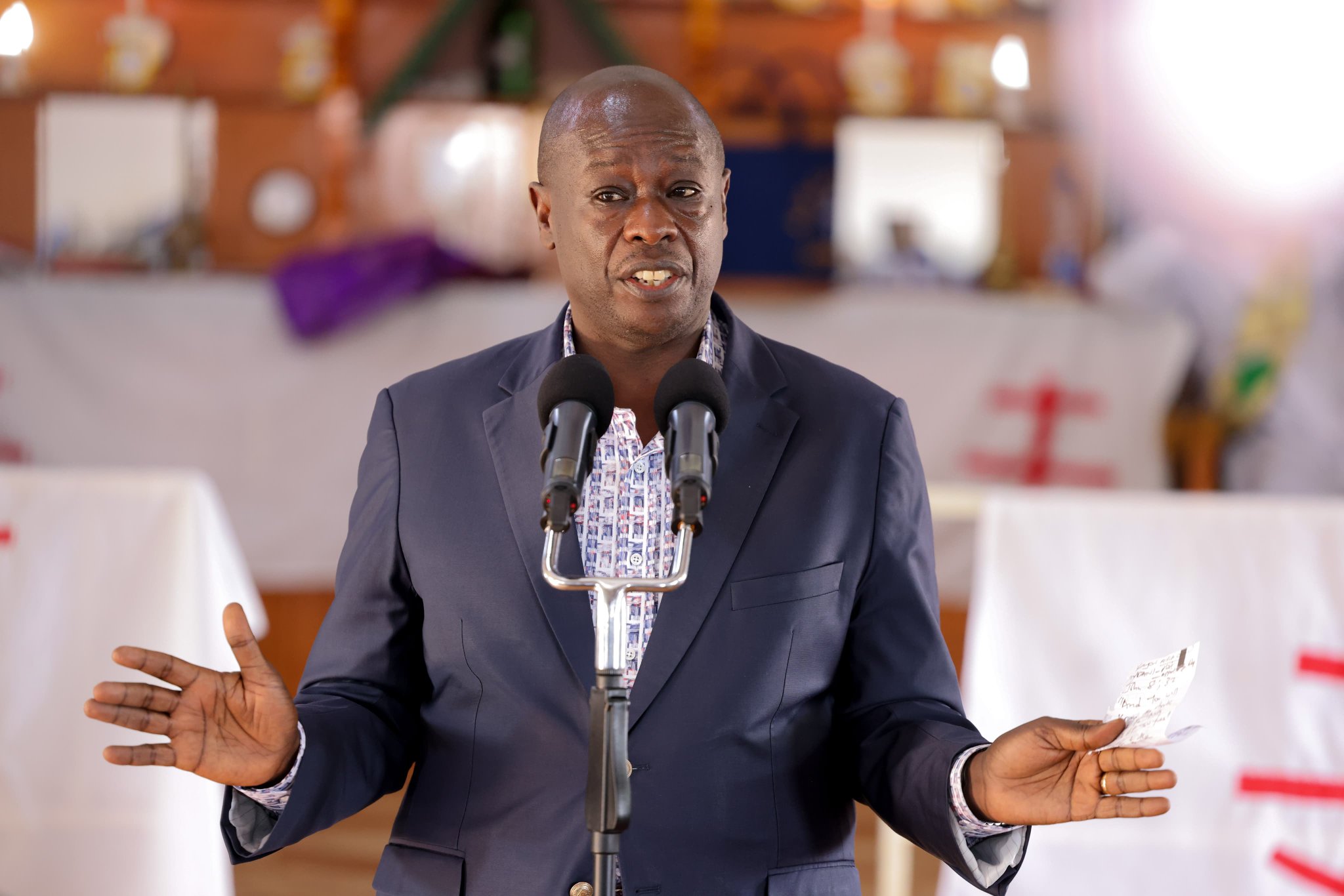- Rigathi Gachagua is unlike any Kenyan politician of his generation. While others prefer calculated speech, Gachagua is raw, direct, and sometimes unfiltered. His uniqueness lies in: Unapologetic Kikuyu nationalism, especially in defense of central Kenya’s interests.
In Kenya’s ever-evolving political theatre, few figures have sparked as much debate, admiration, and ridicule as Geoffrey Rigathi Gachagua.
His journey from the remote village of Hiriga in Nyeri County to the powerful office of the Deputy President and his eventual dramatic impeachment in 2024 reads like a political thriller laced with defiance, populism, and sharp contradictions.
Rigathi Gachagua was born on February 28, 1965, he grew up in a household that bore the scars and pride of the Mau Mau freedom struggle.
Gachagua began his education at Kabiruini Primary School, where he excelled and earned admission to Kianyaga High School. His academic excellence continued, and in 1985, he joined the University of Nairobi, studying Political Science and Literature.
While at university, he became a student leader, chairing the Nyeri District University Students Association (NDUSA) and the Literature Students' Association.
Read More
Rigathi is married to Pastor Dorcas Gachagua, a preacher and counselor known for her Christian ministry and outreach to vulnerable groups, especially boys and men.
Together, they have two sons. The couple has often spoken publicly about their faith and family values, portraying themselves as deeply religious and grounded in traditional Kenyan culture.
After university, Gachagua joined the Ministry of Home Affairs and National Heritage before enrolling at the Administration Police Institute. He later served as a District Officer (DO) in several regions including Kiambu, Ng’arua, and Kakamega experiences that gave him firsthand understanding of Kenya's local governance dynamics.
In 2001, he was appointed Personal Assistant to then-Minister of Local Government Uhuru Kenyatta, building close ties that would prove useful in his political rise.
He later transitioned into business, becoming the CEO of Ridor Group of Companies, involved in logistics and supplies.
Gachagua made his political debut in 2017, winning the Mathira parliamentary seat under the Jubilee Party. In Parliament, he earned a reputation as a fierce debater and unapologetic defender of Mount Kenya interests.
By 2022, he had aligned himself with William Ruto, becoming his running mate under the Kenya Kwanza coalition. The pair won the election, and Gachagua was sworn in as Deputy President on September 13, 2022.
Gachagua was instrumental in selling the bottom-up economic model, promising to empower ordinary Kenyans, known for connecting directly with rural voters, especially in central Kenya, he rejuvenated local politics with a raw, relatable tone.
He frequently called for austerity, criticized wastage, and demanded accountability within public institutions, his office supported efforts to rehabilitate vulnerable youth, especially in slums and rural towns.
Around October 2024 , Gachagua became the first Deputy President in Kenyan history to be impeached, facing charges of corruption, ethnic incitement, violation of public trust, and insubordination to the President.
His name has been associated with questionable tenders and wealth accumulation while serving as an MP. Public disagreements with the President over policy and governance led to his political isolation, His blunt and often tribal remarks alienated some communities and leaders, leading to accusations of promoting disunity.
Rigathi Gachagua is unlike any Kenyan politician of his generation. While others prefer calculated speech, Gachagua is raw, direct, and sometimes unfiltered.
His uniqueness lies in: Unapologetic Kikuyu nationalism, especially in defense of central Kenya’s interests, a populist tone, often invoking “common mwananchi” struggles, unpolished delivery, which ironically made him more relatable to some and comical to others.
Gachagua has made popular several phrases that often go viral on Kenyan social media which include:
“Sisi ni shareholders wa hii serikali.” Translation: “We are shareholders in this government.” Sparked memes about political entitlement and tribal allocations.
“Serikali ni kama kampuni.” Translation: “Government is like a company.” Used to explain why Kenya Kwanza loyalists deserved first priority in appointments.
“Watu wa mlima lazima walindwe.” Translation: “People of the mountain must be protected.” Seen as ethnically charged but popular among Mt. Kenya supporters.
“Deep state ilikuwa tu kelele.” Translation: “Deep state was just noise.” After the 2022 victory, mocking opposition claims of government interference. These phrases made Gachagua a social media sensation, regularly featured in memes, Tiktok, and X.
Rigathi Gachagua’s political life is a paradox: loved and hated in equal measure. His Mau Mau lineage, populist messaging, and relentless defense of Mt. Kenya make him a symbol of both defiance and division.
Though impeached, Gachagua continues to command influence and is rumored to be eyeing a comeback in 2027, possibly under his new Democracy for Citizens Party (DCP).
For a country constantly searching for identity and leadership, Gachagua represents the raw, unpredictable energy that defines modern Kenyan politics.










